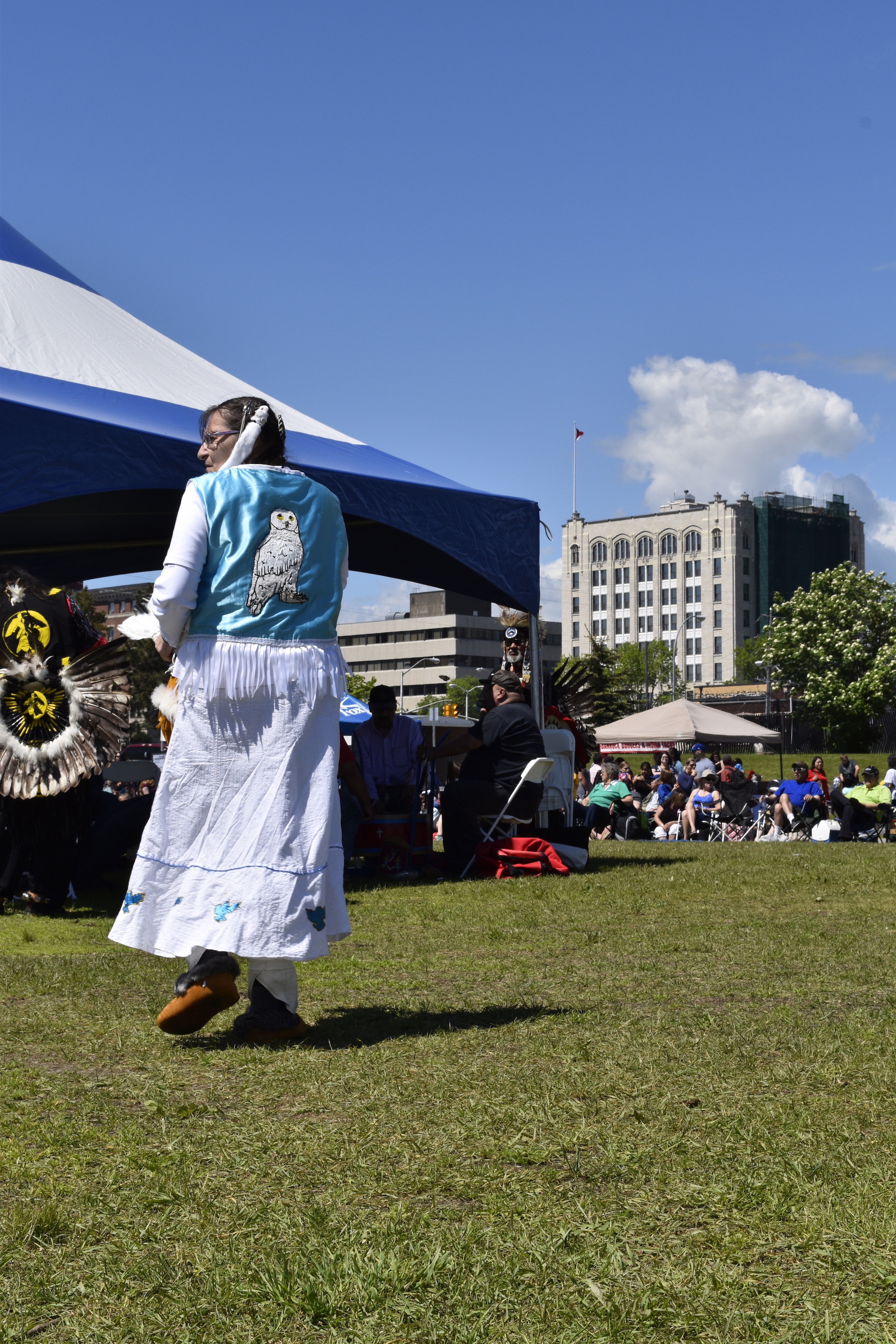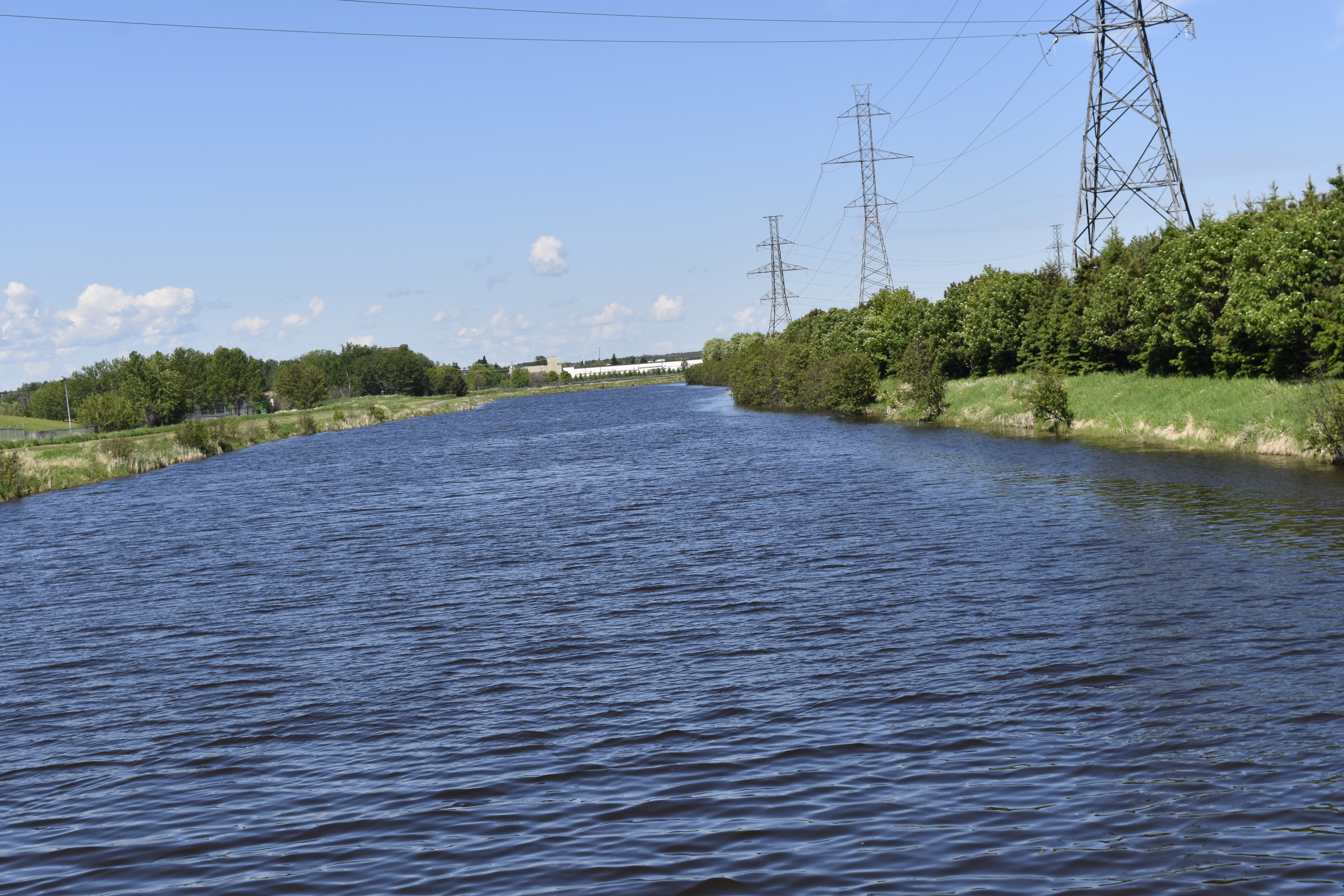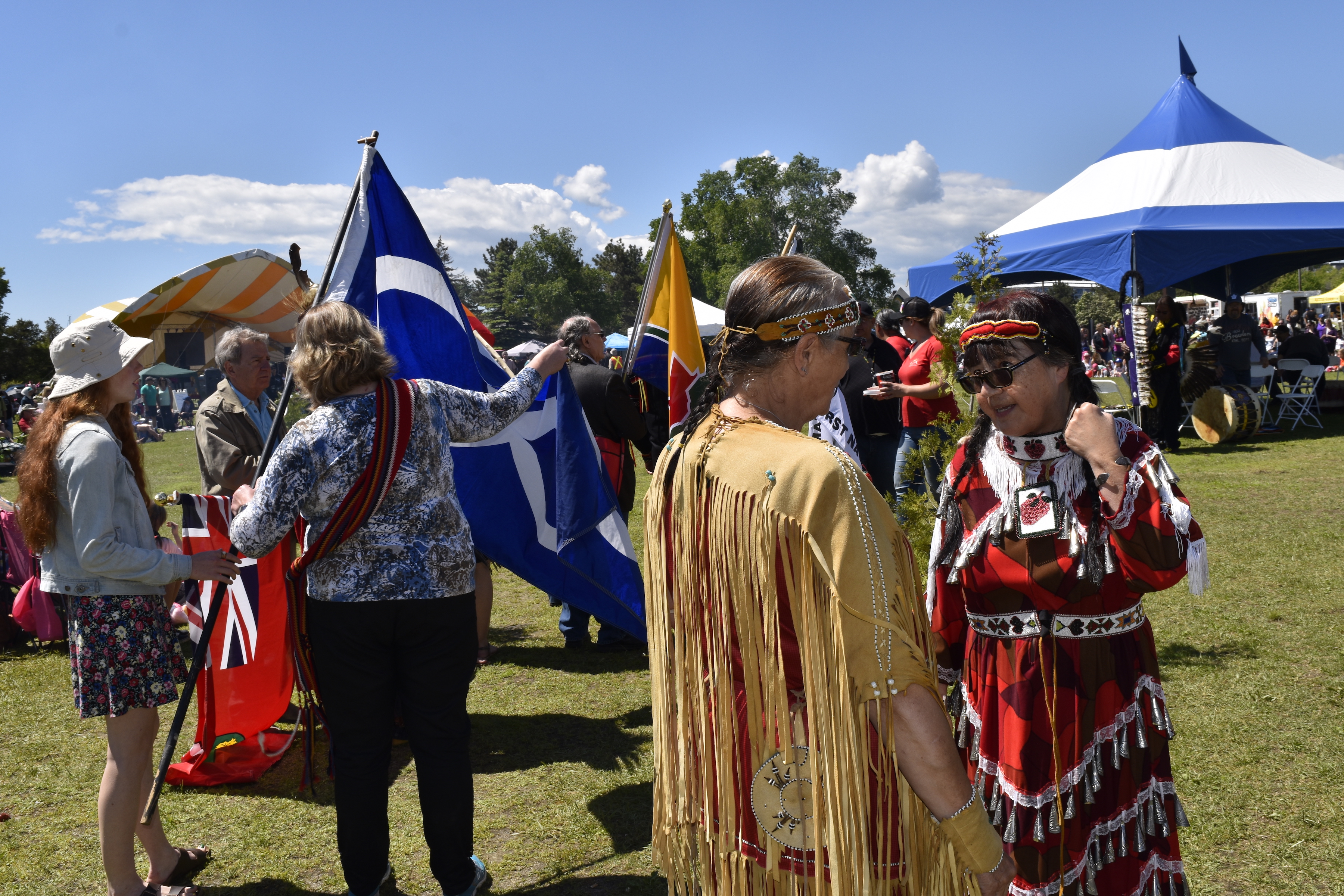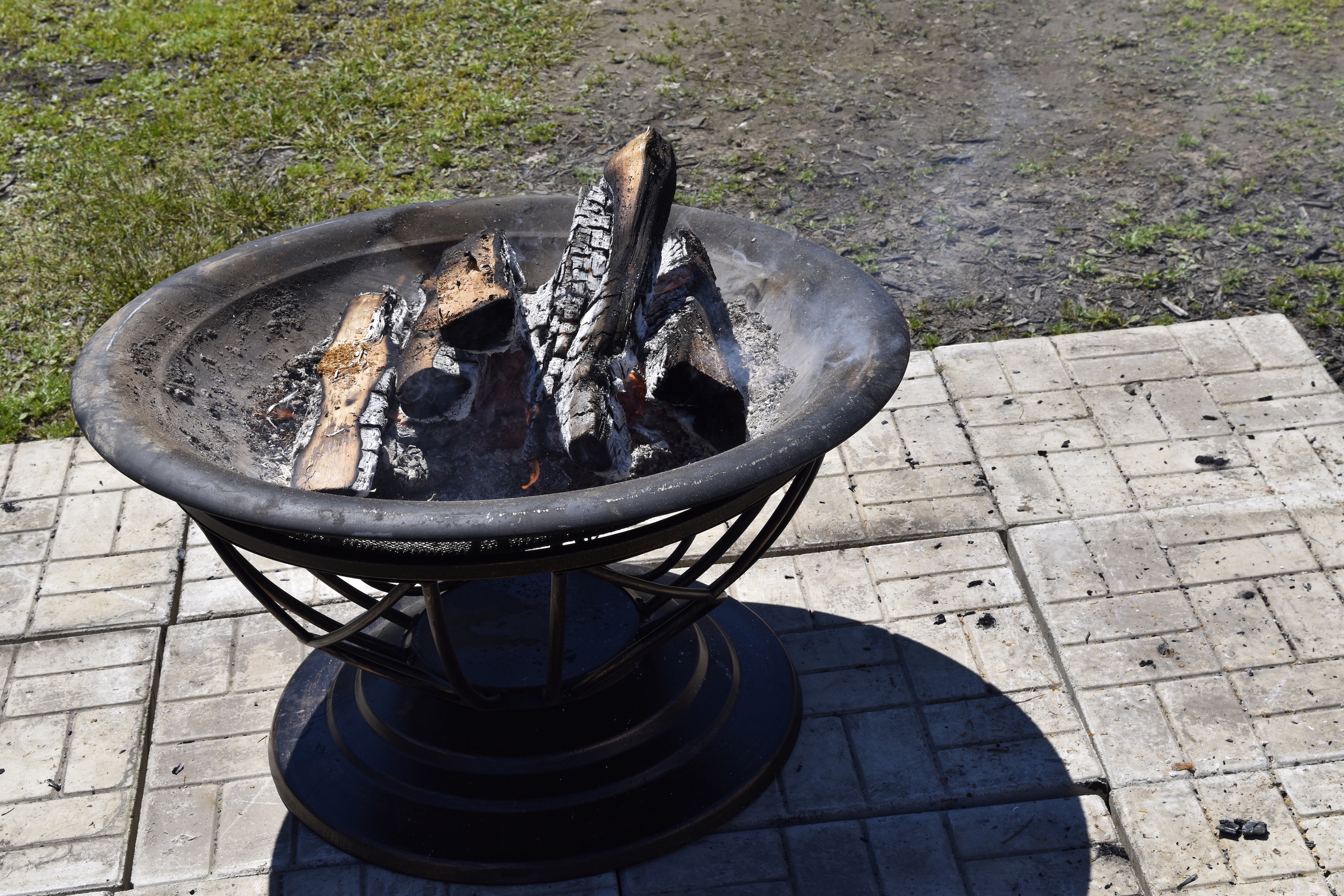For an afternoon, First Nations people in Thunder Bay tried to put out of mind the issues plaguing their communities — rampant racism, an allegedly negligent police force, and unanswered questions about young members of their communities who have recently been found dead in the city’s waterways — to celebrate their way of life.After a sunrise ceremony Wednesday, thousands gathered at Marina Park for National Aboriginal Day, hearing speeches from local leaders, including MP Patty Hadju, Grand Chief Alvin Fiddler, and Fort William First Nation Chief Peter Collins.A crowd of Indigenous and non-Indigenous people of all ages sat in a giant circle around the festival grounds as dancers, in full regalia, entered to the sounds of the host drum, Dark River. Vendors selling jewelry and clothing, community organizations, and food stalls lined the pathways of the park. “If we want world peace, we have to share this beautiful way of life with everybody,” emcee Todd Genno told the crowd as they wanted to the grand entrance. “We all hope you learn something, we all hope you feel something.”The mood was jovial.But while they were there to celebrate, in interviews, it wasn’t long before attendees turned their focus to frustrations with their experiences of racism as First Nations people in Thunder Bay, and those of their children.Last week, it was revealed that Thunder Bay has the highest hate crime rate in the country, driven largely by acts committed against the city’s Indigenous people. In an interview yesterday with the Canadian Press, Hadju, a Thunder Bay MP, said she wasn’t surprised by the “appalling” numbers.“I am ashamed to say that I wasn’t surprised to see that, as someone who has lived in that community for a very long time and I have some long-standing relationships with indigenous people,” Hajdu saidLate last month, First Nations leaders in the city called on the RCMP to step in to investigate the recent deaths of teenagers Tammy Keeash and Josiah Begg, as well as 41-year-old Stacy DeBungee. Keeash was found in the Neebing-McIntyre Floodway last month. Begg was found dead in the McIntyre River on May 18 while DeBungee’s body was discovered in the river in 2015.A total of seven teenagers have died this way in the city, and in all cases, Thunder Bay police have been quick to declare that there was no evidence of foul play. But many Indigenous people are growing concerned that someone or a group of people is targeting young First Nations people and believe the police have not investigated this possibility thoroughly enough.
“If we want world peace, we have to share this beautiful way of life with everybody,” emcee Todd Genno told the crowd as they wanted to the grand entrance. “We all hope you learn something, we all hope you feel something.”The mood was jovial.But while they were there to celebrate, in interviews, it wasn’t long before attendees turned their focus to frustrations with their experiences of racism as First Nations people in Thunder Bay, and those of their children.Last week, it was revealed that Thunder Bay has the highest hate crime rate in the country, driven largely by acts committed against the city’s Indigenous people. In an interview yesterday with the Canadian Press, Hadju, a Thunder Bay MP, said she wasn’t surprised by the “appalling” numbers.“I am ashamed to say that I wasn’t surprised to see that, as someone who has lived in that community for a very long time and I have some long-standing relationships with indigenous people,” Hajdu saidLate last month, First Nations leaders in the city called on the RCMP to step in to investigate the recent deaths of teenagers Tammy Keeash and Josiah Begg, as well as 41-year-old Stacy DeBungee. Keeash was found in the Neebing-McIntyre Floodway last month. Begg was found dead in the McIntyre River on May 18 while DeBungee’s body was discovered in the river in 2015.A total of seven teenagers have died this way in the city, and in all cases, Thunder Bay police have been quick to declare that there was no evidence of foul play. But many Indigenous people are growing concerned that someone or a group of people is targeting young First Nations people and believe the police have not investigated this possibility thoroughly enough. Beverly Bannon of Fort William First Nation said the festivities were what her culture was all about — laughter, joy, and dancing — and that it felt great to revive what residential schools had nearly stripped away from her people.But the “racism is really bad,” she said, bringing up the struggles of First Nations students who come to Thunder Bay from their reserves to attend high school, but are often discriminated against when they’re out and about in the city.“It happened with my grandson,” she said. “He was called a savage.”Cathleen Sawdo of Lac de Milles Lac First Nation said as someone who grew up in Thunder Bay, the racism is nothing new.“I’ve had rocks thrown at me and everything else,” she said. “But people are more empowered now to say something. Our youth are become more educated and learning to say something. Before, we’d just look down and shut up. We need to stop questioning them and believe them.”
Beverly Bannon of Fort William First Nation said the festivities were what her culture was all about — laughter, joy, and dancing — and that it felt great to revive what residential schools had nearly stripped away from her people.But the “racism is really bad,” she said, bringing up the struggles of First Nations students who come to Thunder Bay from their reserves to attend high school, but are often discriminated against when they’re out and about in the city.“It happened with my grandson,” she said. “He was called a savage.”Cathleen Sawdo of Lac de Milles Lac First Nation said as someone who grew up in Thunder Bay, the racism is nothing new.“I’ve had rocks thrown at me and everything else,” she said. “But people are more empowered now to say something. Our youth are become more educated and learning to say something. Before, we’d just look down and shut up. We need to stop questioning them and believe them.” Sawdo’s sons, 21 and 23, refuse to live in the city because of the racism, she said.“Both my boys are traditional, they wear long hair, and they feel they’re safer out [in Edmonton.]”“A lot of people have mistrust in the Thunder Bay police right now, and I think that’s what’s on their mind,” said Jennifer McKenzie, a Gladue worker at the Nishnawbe-Aski Legal Services Corporation. “What’s on their mind is we just want to be heard, to be taken seriously, and we want proper investigations to be done.”“I feel like they don’t consider us one of them” she said of local leaders.She recalled how when there was an initiative to support the family of Josiah Begg, whose body was found in the McIntyre River shortly afterwards, she did not see anyone from the city.It’s possible they didn’t know about it, she admits, but “if they were involved in the community, they’d know.”“I feel like there hasn’t been the same amount of attention or persistence or care into responding to what’s been happening.”
Sawdo’s sons, 21 and 23, refuse to live in the city because of the racism, she said.“Both my boys are traditional, they wear long hair, and they feel they’re safer out [in Edmonton.]”“A lot of people have mistrust in the Thunder Bay police right now, and I think that’s what’s on their mind,” said Jennifer McKenzie, a Gladue worker at the Nishnawbe-Aski Legal Services Corporation. “What’s on their mind is we just want to be heard, to be taken seriously, and we want proper investigations to be done.”“I feel like they don’t consider us one of them” she said of local leaders.She recalled how when there was an initiative to support the family of Josiah Begg, whose body was found in the McIntyre River shortly afterwards, she did not see anyone from the city.It’s possible they didn’t know about it, she admits, but “if they were involved in the community, they’d know.”“I feel like there hasn’t been the same amount of attention or persistence or care into responding to what’s been happening.”
Advertisement

Advertisement


Advertisement
